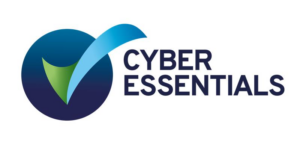
A new online tool to help the rail industry measure the social value of its investments, infrastructure projects and day-to-day operations has now been launched.
The Rail Social Value Tool (RSVT), co-funded by Network Rail, is provided by the Rail Safety Standards Board (RSSB) and Loop (formerly Social Profit Calculator).
The RSVT allows the rail industry to forecast, monitor and evaluate the social value of its activities. This is about measuring the impact on the welfare and wellbeing of both individuals and wider society, the net positive (or negative) social, economic, and fiscal value that a project, organisation or specific initiative generates.
Thinking about social value can help groups and organisations – including those in community rail – to be effective, increase their impact, and shout about the great work they are doing and the difference they are making in their local communities. Community rail partnerships and groups may also be asked about the social value they bring by funders or by other partners in the industry, and it may help to bring in funding from new sources too.
You can find more information about social value, including the RSVT, in our recent briefing paper for members, which also highlighted our Impact Reporting tool, that enables community rail partnerships and station groups to track and record their activities and associated indicators of change.
With 500 indicators, organised across 12 social impacts, the RSVT can measure and monetise a wide range of benefits. These include:
- Improving safety;
- Jobs created, apprentices employed, and training provided;
- Change to air quality;
- Increasing biodiversity, by protecting and boosting plant and animal life, and planting trees;
- Curriculum enrichment support for young people;
- Design features that make rail travel more accessible and inclusive;
- Employee and community volunteering;
- Co-designing infrastructure and services with communities.
The RSVT has undergone extensive testing since November 2021 by early adopters, including Network Rail and companies in its supply chain.
George Davies, RSSB’s director for sustainable development, said: “It’s fantastic to see the Rail Social Value Tool launched. It’s a first for the rail industry, and I would like to thank everyone involved in its development.
“Rail is one of the most sustainable forms of transport. However, until now, we haven’t been able to measure its social value in sufficient detail. We can now assess, and importantly place a financial value on the effect the railway has in a number of areas including the natural environment, communities, people and their health, cultural heritage, housing, inclusivity, and distribution of opportunities.
“As we transform the railway and deliver the vision of the Williams-Shapps Plan for Rail, the Rail Social Value Tool will guide decisions on rail development across the country to ensure the best return on those investments for society.”
Liz Holford, Network Rail’s sustainability strategy manager (social performance), said: “The launch of the Rail Social Value Tool is an important milestone which enables our industry to make a step-change in how we understand and manage our impacts on people.
“We’re already using the tool to forecast and maximise the social value of station redevelopments and infrastructure enhancements as well as current projects and some completed ones, and we’re looking forward to using it further to manage and improve the impact our railway has on society.”
Gerard Toplass, group chief executive, Loop, added: “We are proud to have worked with RSSB and the wider rail sector to help them deliver the Rail Social Value Tool. Together we have developed 449 measures (KPIs) across 12 social value impact areas that cover people, sustainability and economic activity.
“It is a first for the industry, and our software team worked in true collaboration with RSSB to develop a simple and accessible tool that can be used throughout the supply-chain and is aligned to the sector’s needs and objectives. Over the next five years we look forward to further developing the tool and helping the rail sector continue to deliver measured social value.”
We recommend community rail partnerships and groups speak to their usul train operator contact to find out if they are using the tool and how it might relate to community rail activity.
Further information on the RSVT is available here.

